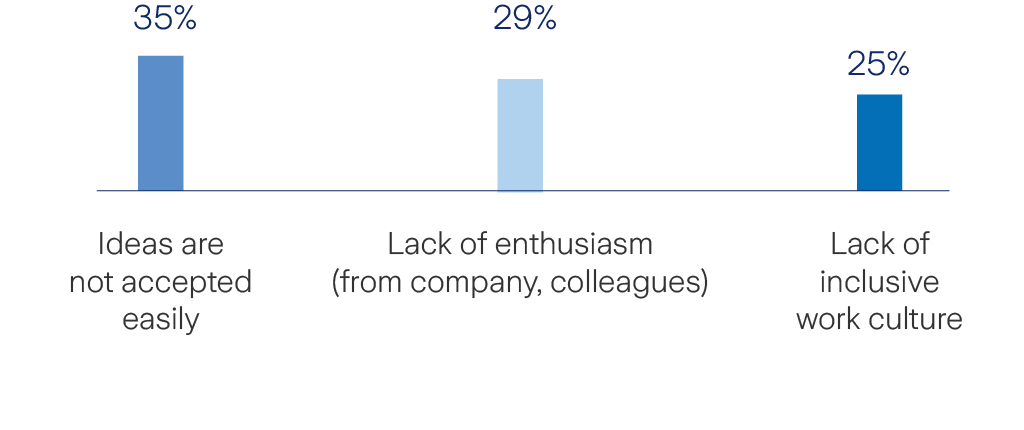In today’s rapidly evolving world, the foundation of talent attraction and retention is beyond simple financial remuneration. Financial literacy and employee well-being matter, now more than ever, as we enter an era where employee loyalty hinges on ABC – alignment, benefits and culture.
The essence of the future of work is deeply rooted in its human element. There's a growing emphasis on empowering individuals through employee benefits initiatives, including workplace savings plans and financial awareness programmes.
Key insights shaping tomorrow's workforce

UAE's resilience amid global economic volatility
UAE's resilience amid global economic volatility
Over the past two years, the UAE government has launched a range of initiatives to solidify its standing as a preferred destination for global talent. Some of the notable reforms introduced include an investment-related end-of-service benefit scheme to private sector employees, unemployment insurance, adoption of a condensed working week, and new categories of leave.
Main challenges faced by employers
Global economic situation
Divergence in wages
Unequal access to flexibility
Talent retention
The other important factors revolved around the importance of having a diverse workforce, addressing the pay gaps in the market and a clear strategy in place to retain existing talent. There is a need to be as flexible as possible to attract and retain talent.
Top changes in employment market
New Loss of Employment Insurance
Abolition of unlimited contracts
Condensed working week
The higher cost of living and reduced purchasing power has put the employees under pressure to make tough decisions – stay in their current role, or look elsewhere.



Navigating the talent shortage challenge
Navigating the talent shortage challenge
Currently, there exists a shortage of talent possessing essential skillsets required for key functions. In the UAE and KSA, talent deficits stand at approximately 24% and 30%, respectively.
of employers have felt medium to very high impact of talent shortage
employers in the UAE feel there will be an impact of talent shortage in the future
Emiratisation target to be achieved in the private sector by 2025
expected proportion of UAE nationals to be hired in 2023
Functions impacted by talent shortage
Foreseen proportion of
locals vs. expats hiring
by employers



Adapting employee benefits for changing needs
Adapting employee benefits for changing needs
In the UAE, employees prioritise the presence of a well-defined career advancement plan coupled with the option for hybrid work arrangements / flexible working hours.
Reasons why employees changed jobs
Better salary package
Better employee benefits
Professional development / Growth
Employers in the UAE have shown positive inclination towards enhancing their employee benefits packages in the next 6 months.
Gap between employer and employee in terms of employee benefits
Challenges faced by UAE employers in employee benefits administration
41%
Helping employees understand benefits
41%
High cost of acquiring benefits
38%
Staying current in a changing regulatory environment


Talent's quest for new opportunities
Talent's quest for new opportunities
With the increasing opportunities available in the market, we see that there are a significant number that would consider changing roles. As many as 78% in KSA and 74% in the UAE are happy to change roles in the next 12-18 months.
higher intention to change jobs among the younger employees in the age group 25-34 years.
looking for a job change compared to women (80% vs. 70%).
Employees intend to continue in the same role but feel stuck.

There is a growing interest among employees in the UAE to potentially relocate to other GCC countries including Saudi Arabia, due to the opportunities linked to the Vision 2030 initiatives such as NEOM, Red Sea project, Qiddiya, etc.
employees in the UAE and KSA have changed jobs in the last year.
Employees are most likely to look for new opportunities within the UAE

of western expats changed jobs in the last 12 months.

Higher proportion of women have changed jobs compared to men in last 12 months.

Higher proportion of employees working in small firms (with 11-50 employees) have changed jobs in the last 12 months.


Act today to secure tomorrow
Act today to secure tomorrow
It is imperative for employers to act today to continue to attract new talent as well as retain the existing talent.
Factors pushing employers to offer employee benefits
To retain key talent
Contractual requirement
Industry best practices
Benefits of prioritising employee wellbeing in people strategy
Increased productivity
Overall satisfaction
Attraction / Retention
People engagement

Employee wellbeing
is pivotal for an organisation's enduring success, as it directly contributes to its overall growth.
Current challenges faced by
UAE employees

Employees who feel their
employer supports them in
professional development to
acquire new skills
How UAE employers establish
a positive workplace culture

Positive workplace culture finds more merit in 2023

employers in the UAE and KSA say that retaining talent is the main factor pushing them to offer better employee benefits.
Training and feeling valued
by the employer is important for employees to feel empowered within their workplace.

Balancing short and long-term benefits
The study reveals that employees today are increasingly motivated by factors other than competitive pay, with enhanced employee benefits emerging as a primary motivator to change jobs, as well as a key factor in establishing a long-term relationship between employers and employees.
It’s imperative for employers to prioritise and continuously evaluate their employee benefits offering.
Workplace savings, financial literacy, life insurance, child education allowance and critical illness cover should be the key focus areas for employers.
Evolving regulatory reforms, a diversified talent pool, and a growing emphasis on upskilling local talent underscore the need for flexible and tailored employee benefits packages.
To attract and retain talent, employers must make it a priority to put employee well-being front and centre, establishing themselves as an employer of choice.
Acknowledgements
The overall findings of this study were supplemented by discussions with industry experts whose valuable comments have helped to add more depth to the findings. Their contributions are sincerely appreciated.





